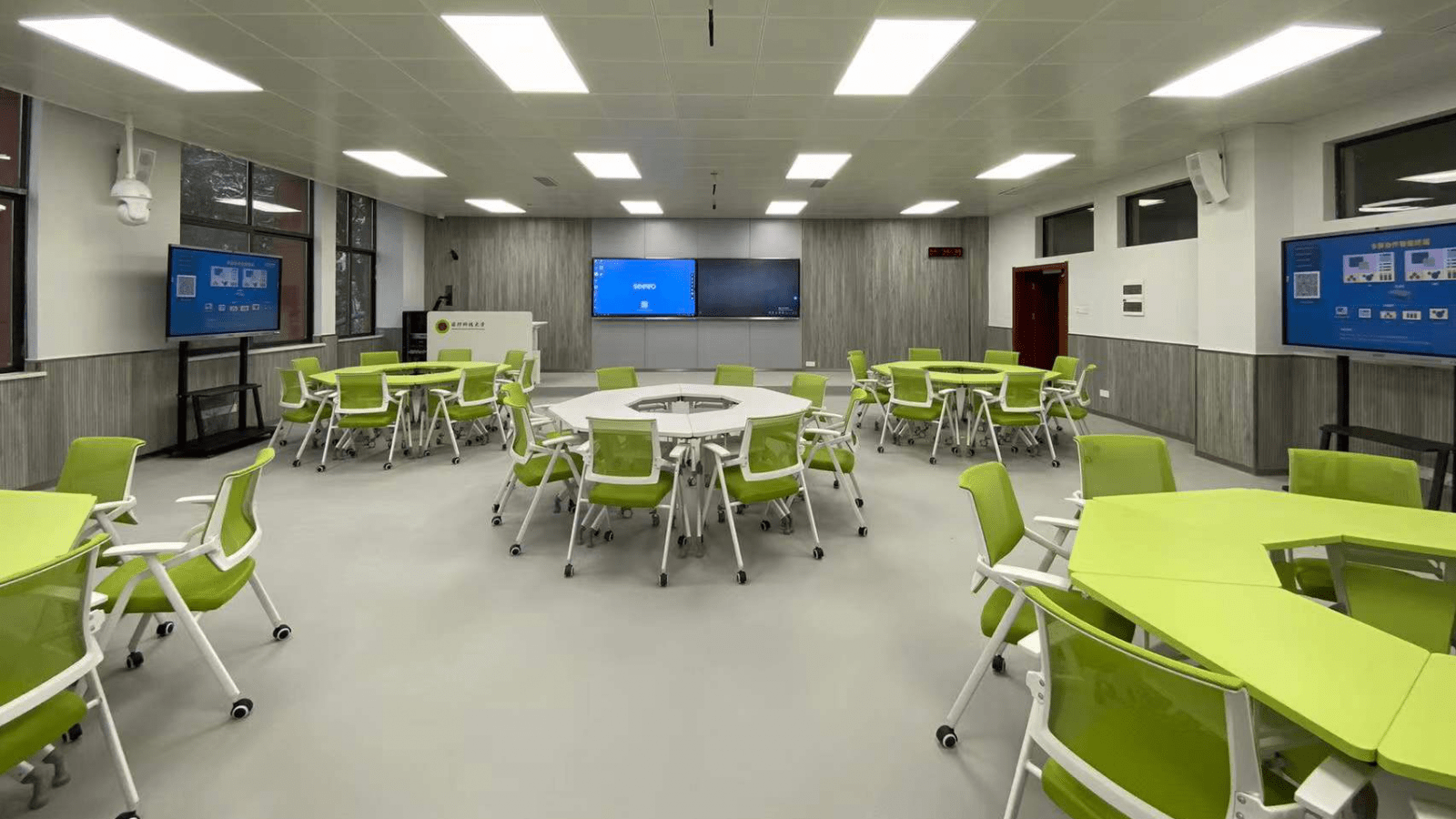Smart Classroom – Advantages of Smart Classroom

1) Digitization and networking are the foundation. A digital campus is built on the basis of networking, and without the internet within the campus, the advantages of a digital campus cannot be achieved, making it difficult to communicate campus information in virtual space.
Similarly, smart campuses require a network foundation and must be based on digital campuses. On the one hand, utilizing the unified digital coding provided by digital campuses; On the other hand, single sign on for digital campuses is also adopted. These are the basic conditions that smart campuses must possess.
2) Integration and intelligence are the core. The goal of digital campuses in the Internet era is information exchange and interconnection. The subject of information exchange is only humans, while the subject of information exchange in smart campuses in the Internet of Things era has extended from a single person to “things.”.
For example, the buildings, teaching instruments, tables, chairs, benches, books, magazines, school equipment, and so on in the campus, the people in the smart campus are organically integrated with the “things” in the campus to form an intelligent whole. Its core content not only reflects the characteristics of integration, but also gives these “things” intelligence.

3) Intelligent cloud computing is the soul. The Internet has solved the problem of information interconnection and intercommunication, while sensor networks have solved the problem of perception of the surrounding environment in a broad sense. The key issue is that countless “perceived” information must make correct decisions and judgments after intersecting through interconnected networks, achieving a correct reflection of “perceived” information and commanding execution agencies to execute it.
This is equivalent to requiring the intelligent processing center or data center of the human brain to calculate and process countless “perceived” information, summarize and judge the problems reflected in those “perceived” information sets, and then issue instructions to the executing agency. Therefore, the soul of a smart campus is “intelligence”, and “intelligence” cannot be achieved without cloud computing.
The smart campus generated by the Internet of Things has both connections and differences with the digital campus of the Internet era. Digital campus is the foundation of smart campus, and smart campus is an extension of digital campus. Both are information technology solutions for school campuses.
The difference is that digital campuses are based on information exchange and interaction among people on the Internet, emphasizing unified information coding and providing system authorized services through single sign on; A smart campus is an intelligent service that extends and extends services to objects on the basis of a digital campus, providing information exchange and interconnection between people and objects, and between objects.